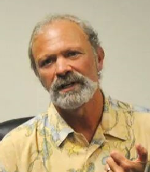
Scott S. Rubin, Ph.D., CCC-SLP
Associate Professor
srubin@lsuhsc.edu
EDUCATION
Ph.D., The University of Georgia, Communication Sciences and Disorders, 1993
M.Ed., Florida Atlantic University, Communication Sciences and Disorders, 1989
B.A., Georgia State University, Speech/Theatre, 1985
ACADEMIC EMPLOYMENT
Associate Professor, (Tenured, 2007) Department of Communication Disorders, Louisiana State University Health Sciences Center, New Orleans, LA, 2004 - Present
Associate Professor, (Tenured), Full Graduate Faculty Status, Department of Speech Pathology and Audiology, The University of South Alabama, Mobile, AL, 2001 - 2004
Assistant Professor, Full Graduate Faculty Status, Department of Speech Pathology and Audiology, The University of South Alabama, Mobile, AL, 1997 - 2001
Assistant Professor, Department of Communication Sciences and Disorders, The University of Georgia, Athens, GA, 1993 - 1997
DEPARTMENTAL DUTIES
Teach courses in neuroanatomy, neurophysiology, neurogenic language and cognitive disorders.
Conduct scholarly activities.
Service to Department, School, and University.
Limited clinical supervision in the area of adult neurogenic communication disorders.
Co-Faculty Advisor, NSSLHA.
Coordinator of Comprehensive Examinations
Chair SLP Admissions Committee
SCHOOL AND CENTER DUTIES
Member - LSU Faculty Senate
Member - Council of Faculty Advisors to the LSU Board of Supervisors
Past-President, LSUHSC Faculty Senate (2009-2010)
Past-Member - School of Allied Health Faculty Assembly Representative
PREFERRED RESEARCH ACTIVITY
Research is primarily in the area of neurological functioning related to aging, aphasia, and symbol processing using both electrophysiological and behavioral methods
PROFESSIONAL DUTIES
Chair, Board of Ethics. Academy of Neurogenic Communication Disorders and Sciences (ANCDS) (2004-2005)
PHILOSOPHY OF EDUCATION
Learning is optimized by a supportive and exciting atmosphere in the classroom. The role of a professor is to help the student truly integrate information and apply their academic knowledge to their clinical endeavors. Learning (and education) must be fun, interactive, and intellectually stimulating.

 myLSUHSC
myLSUHSC